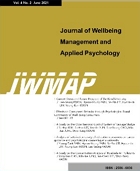A Comparative Study on the Cognitive Function of the Elderly with Normal and Mild Cognitive Disabilities
JOOEun-sol(Eun-sol JOO) (Department of Social Welfare, Dong-A Health University)
OHEun-ju(Eun-ju OH) (Department of Social Welfare, Dong-A Health University)
Abstract
Purpose: The purpose of this study is to compare and analyze the differences in general characteristics (gender, age, educational background, presence of spouse, alcohol consumption) and cognitive function between elderly individuals aged 65 or older with mild cognitive impairment (MCI) in Buan, Jeollabuk-do. Research design, data and methodology: This study evaluated cognitive function among 345 elderly participants using K-MOCA. Data were collected from July 10, 2024 to Aug. 10, 2024. Results: The analysis revealed statistically significant differences between the elderly with MCI and those with normal cognitive function, particularly in age and education level. Those in their 70s or older and individuals with less than a university education were at a higher risk of MCI. Sub-item analysis of K-MOCA showed significant cognitive function differences in areas such as spatial execution ability, vocabulary, attention, sensitive power, delayed recall, and sentence power, with MCI patients performing worse than the normal group. Conclusions: This study highlights the importance of demographic factors such as age, education, cohabitation with a spouse, and alcohol consumption in the cognitive health of the elderly. These findings emphasize the need for early diagnostic tools, such as K-MOCA, to identify at-risk individuals and intervene early to prevent progression to dementia
- keywords
- Mild Cognitive Impairment, K-MOCA, Elderly, Cognitive Function, Early Diagnosis
- 다운로드 수
- 조회수
- 0KCI 피인용수
- 0WOS 피인용수















